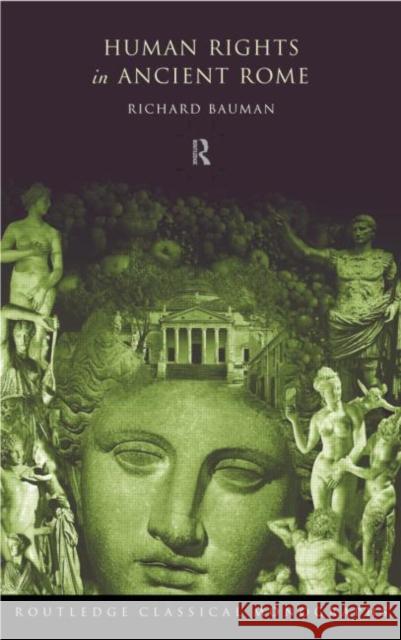Human Rights in Ancient Rome » książka
Human Rights in Ancient Rome
ISBN-13: 9780415173209 / Angielski / Twarda / 1999 / 208 str.
Human Rights in Ancient Rome
ISBN-13: 9780415173209 / Angielski / Twarda / 1999 / 208 str.
(netto: 629,71 VAT: 5%)
Najniższa cena z 30 dni: 653,11
ok. 22 dni roboczych.
Darmowa dostawa!
Human rights is at the forefront of contemporary thinking, but the extensive literature on the subject focuses on human rights in today's world and pays little or no attention to the contributions of classical antiquity. This book provides the modern concept of human rights with a pedigree and uncovers its roots. After an introductory chapter on human rights in ancient Greece, Richard A. Bauman provides a detailed exposition of the Roman position of the Republic and the Principate. The first Roman experiments centre largely on the turn of the 3rd century BC. In the 2nd century this leads into the all-important concept of humanitas Romana. The Late Republic is dominated by Cicero, with special reference to universalism, avoidance of the death penalty, humanitas as a canon of legal interpretation, and curbs on the ill-treatment of non-Romans. A new image of humanitas in the Principate is mainly fuelled by Seneca. His contribution to human rights covers clemency, updated curbs on the ill-treatment of non-Romans, universalism, freedom of speech and social welfare. Finally the text explores the dark side of human rights - genocide, slavery, racial prejudice and the Roman games.











